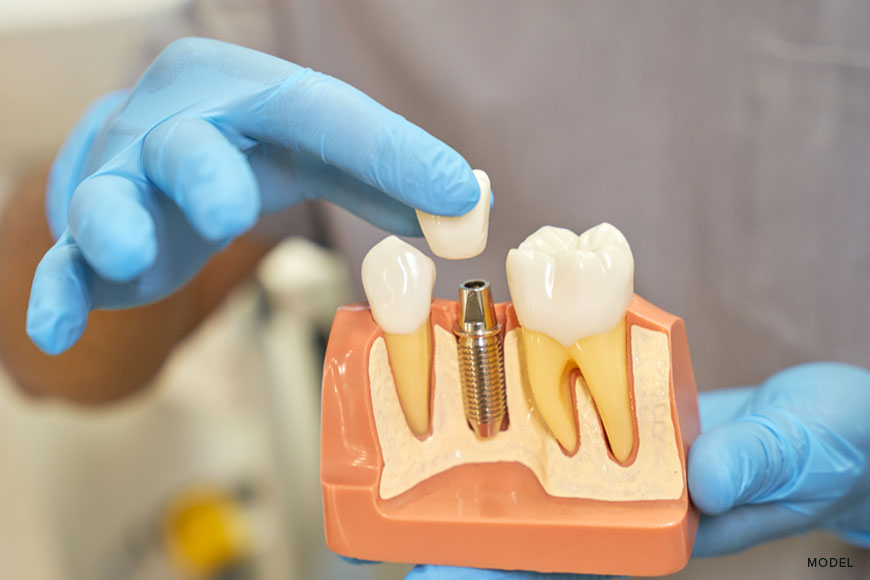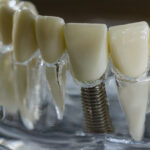When it comes to replacing missing teeth, there are several options available to restore your smile and maintain your overall oral health. Two popular choices are dental implants vs bridges. Both options have their pros and cons, which we’ll delve into in this comprehensive guide.
Madison Dentistry and Implant Center offers a range of dental services, but let’s spotlight the benefits of dental implants, why they may be the superior choice for many patients, and how they compare to dental bridges.
Understanding Dental Implants
Dental implants are artificial tooth roots that are surgically positioned in your jawbone to provide a stable foundation for replacement teeth. These implants are typically made of titanium, which fuses with the jawbone through a process called osseointegration, creating a strong and long-lasting bond.
The Pros of Dental Implants
- Natural-Looking Results: Dental implants are designed to mimic the appearance of natural teeth, providing a seamless and attractive smile. They can be matched to the color, shape, and size of your existing teeth, creating a harmonious blend.
- Enhanced Jawbone Health: The titanium implant stimulates the jawbone, preventing bone loss and preserving your facial structure. This promotes long-term oral health and prevents the sunken appearance that can occur with missing teeth.
- Longevity: When properly cared for, dental implants can last a lifetime. Traditional bridges, on the other hand, may need to be replaced every 5 to 15 years.
- Improved Ability to Chew: Dental implants restore your ability to bite and chew comfortably and effectively, allowing you to enjoy a varied and nutritious diet.
- No Impact on Surrounding Teeth: Unlike dental bridges that require the adjacent teeth to be prepared and crowned, dental implants do not affect neighboring teeth. This preserves their natural structure, reducing the risk of future complications.
- No Adhesive or Special Cleaning: Dental implants function just like natural teeth, eliminating the need for messy adhesives or specialized cleaning techniques.
- Increased Confidence: Dental implants have a significant positive impact on self-esteem and confidence. They look, feel, and function like natural teeth, allowing you to feel comfortable and secure in social and professional settings.
The Cons of Dental Implants
- Surgical Procedure: The placement of dental implants requires a surgical procedure. This can lead to temporary discomfort, swelling, and bruising. However, most patients report that the benefits of dental implants far outweigh the temporary side effects.
- Cost: Dental implants can be more expensive compared to other tooth replacement options. However, considering their longevity and the improvements they bring to overall oral health, they are a worthwhile investment.
Understanding Dental Bridges
Dental bridges, also known as fixed partial dentures, are commonly used to replace one or more missing teeth. They consist of artificial teeth (pontics) anchored to dental crowns on the adjacent teeth. Bridges can be made of various materials, such as porcelain, metal, or a combination of both.
The Pros of Dental Bridges
- Non-Surgical: Unlike dental implants, dental bridges can be placed without the need for surgery. This might be a preferred option for patients who are not suitable candidates for dental implant surgery.
- Immediate Results: The process of getting dental bridges is generally quicker compared to dental implants. With dental bridges, you can achieve a restored smile in a shorter time frame.
The Cons of Dental Bridges
- Permanent Modification: To anchor the dental bridge, the adjacent teeth need to be prepared and crowned. This means removing a portion of healthy tooth structure, which can weaken the natural teeth in the long run.
- Limited Lifespan: Dental bridges typically need replacement at some point as they are subject to wear and tear. This means additional expenses and dental appointments in the future.
- Bone Loss and Gum Recession: Dental bridges do not address the issue of bone loss or gum recession, which can occur after tooth loss. Without proper stimulation, the jawbone can deteriorate, affecting your facial appearance and oral health.
- Challenging Oral Hygiene: Cleaning a dental bridge requires special tools and techniques to ensure proper oral hygiene. Flossing becomes more challenging, increasing the risk of decay and gum disease if proper care isn’t taken.
Dental Implants vs Bridges
While both dental implants and bridges offer effective tooth replacement options, dental implants tend to be the preferred choice for many patients due to their superior aesthetics, longevity, and impact on overall oral health. However, each case is unique, and it’s essential to consult with an experienced dentist to determine the best treatment for your specific needs.
Our team at Madison Dentistry and Implant Center is here to provide expert guidance on dental implants vs bridges and help you make informed decisions. We conduct thorough evaluations to determine if you’re a good candidate for implants, considering factors like bone density, gum health, and overall dental condition.
We also understand that dental expenses can be a worry for many patients. We collaborate with dental insurance providers to make the most of your benefits and offer financing options to make dental implants more accessible within your budget. Schedule a consultation or get in touch with us today at 973-822-8003.




